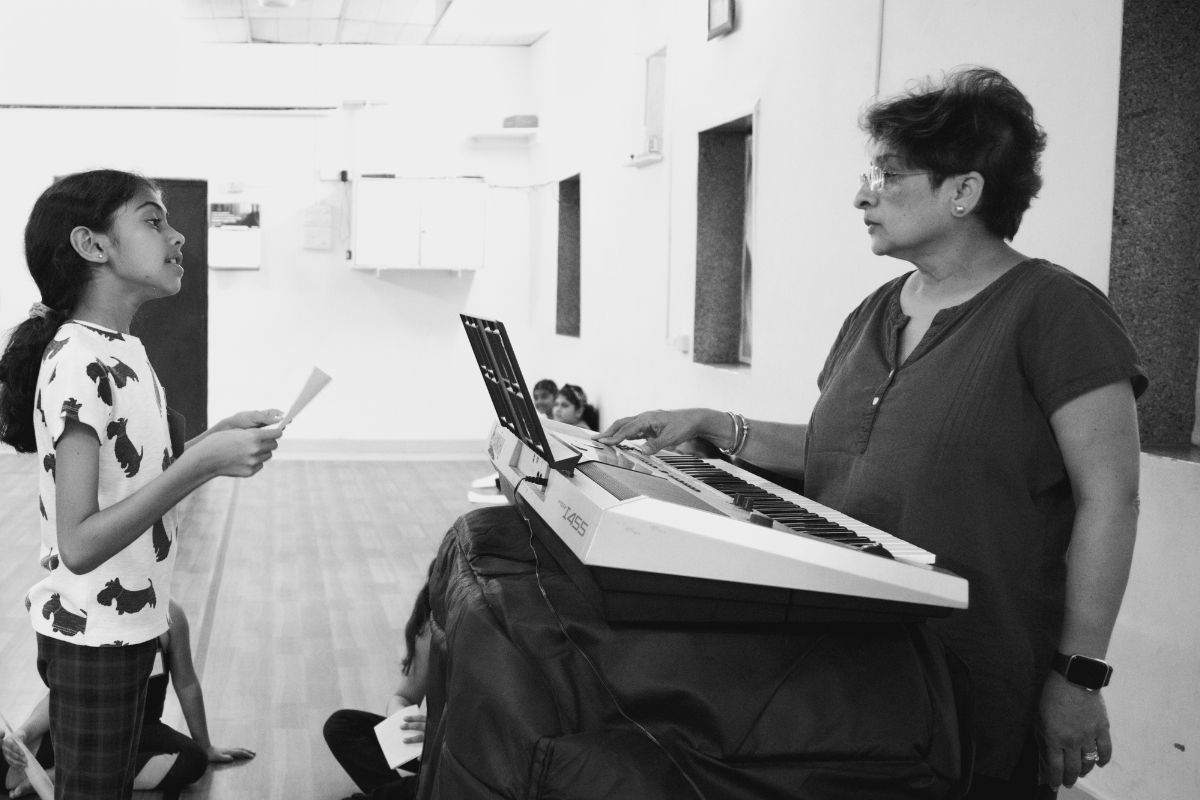How Often Should You Practice Singing?
A Guide for Beginners to Advanced Singers
No art reaches its highest expression without practice. Singing, like dance or painting, demands years of dedication, discipline, and listening—both inward and outward. Even after decades of performing and teaching, I never step onto a stage without putting in the work. Though the shape of my practice has evolved, the commitment remains unchanged. Each session still offers new insight—what’s working, what needs refining, and how to stay connected to the voice.
Whether you’re at the very start of your vocal journey or a seasoned artist fine-tuning your expression, practice is the thread that ties every level together. But how often should you really be practicing? The answer depends on your skill level, goals, and the condition of your vocal health.
Beginners: Build Consistency, Not Intensity
Like a child taking their first steps, beginner singers need to focus on forming strong foundations rather than diving into difficult pieces. Good technique is everything at this stage—it protects the vocal cords, builds stamina, and sets the stage for long-term growth.
Recommended Practice: 20–30 minutes a day, 4–5 times per week.
In my workshops and DCVT (Deirdre Complete Vocal Transformation) programs, I always tailor exercises to match the student’s unique voice. A few fundamentals include:
- Breathing exercises: Breath is the engine behind every note. Learning to breathe efficiently supports vocal longevity and power.
- Gentle warm-ups: Lip trills, sirens, scales, and pitch glides safely warm up the voice.
- Choosing the right songs: Many singers harm their voices early by picking songs outside their current range. Always start with material that suits your voice as it is now, not what you hope it will become.


Intermediate Singers:
Develop Technique and Style
At this stage, singers begin expanding their range, refining resonance, and exploring style. You might be preparing for performances or building a repertoire that reflects your vocal identity.
Recommended Practice: 45–60 minutes a day, 5–6 days a week.
Your routine might include:
- Targeted vocal warm-ups to transition smoothly between registers.
- Technical drills: Tongue rolls or rolled “r”s help gauge breath support. Controlled vibrato, dynamic changes, and articulation drills enhance your delivery.
- Interpretation and expression: Delve into lyrics. Understand the song’s emotional context, composer intent, and stylistic nuance. This is where singing becomes storytelling.
Advanced Singers:
Intentional Practice for Mastery
Advanced singers are focused on nuance, vocal agility, and stage-readiness. Practice becomes less about volume and more about precision, expression, and vocal health.
Recommended Practice: 1–2 hours daily, ideally split into focused sessions.
Some high-level warm-ups include:
- Sirens with Twists: Use lip trills or the “ng” sound to glide from low to high notes. Add dynamics (crescendo/decrescendo) and interval challenges like fifth skips or octave leaps.
- Vowel Modification Scales: Practice 5-note scales on “Ee-Ah-Oo,” ensuring resonance stays balanced and the jaw remains relaxed.
- Arpeggios & Extended Leaps: Use syllables like “Gee,” “Nay,” or “Zing” for clear forward placement. Alternate staccato and legato phrasing.
- Vocal Fry to Falsetto Slides: This gentle transition warms up the head voice and supports smooth register blending.
At this level, it’s not just the voice that needs warming up—it’s the mind. Visualization, critical listening, and mental rehearsal are powerful tools. And above all, vocal rest is sacred. A rested voice is a responsive voice.


No Matter Your Level: The Golden Rules
- Warm up and cool down every session.
- Consistency over intensity: 15 minutes a day is better than a two-hour marathon once a week.
- Stay present: Pay attention to how your body feels, not just how you sound.
- Record and review: Self-assessment is one of the fastest ways to improve.
- Be patient: Mastery takes time—but every step forward counts.
The best singers blend discipline with joy, knowing that the voice isn’t just an instrument—it’s a living, breathing extension of the self. Whether you’re humming your first scale or preparing for a solo on the world stage, let your practice be a space of discovery, care, and growth.

